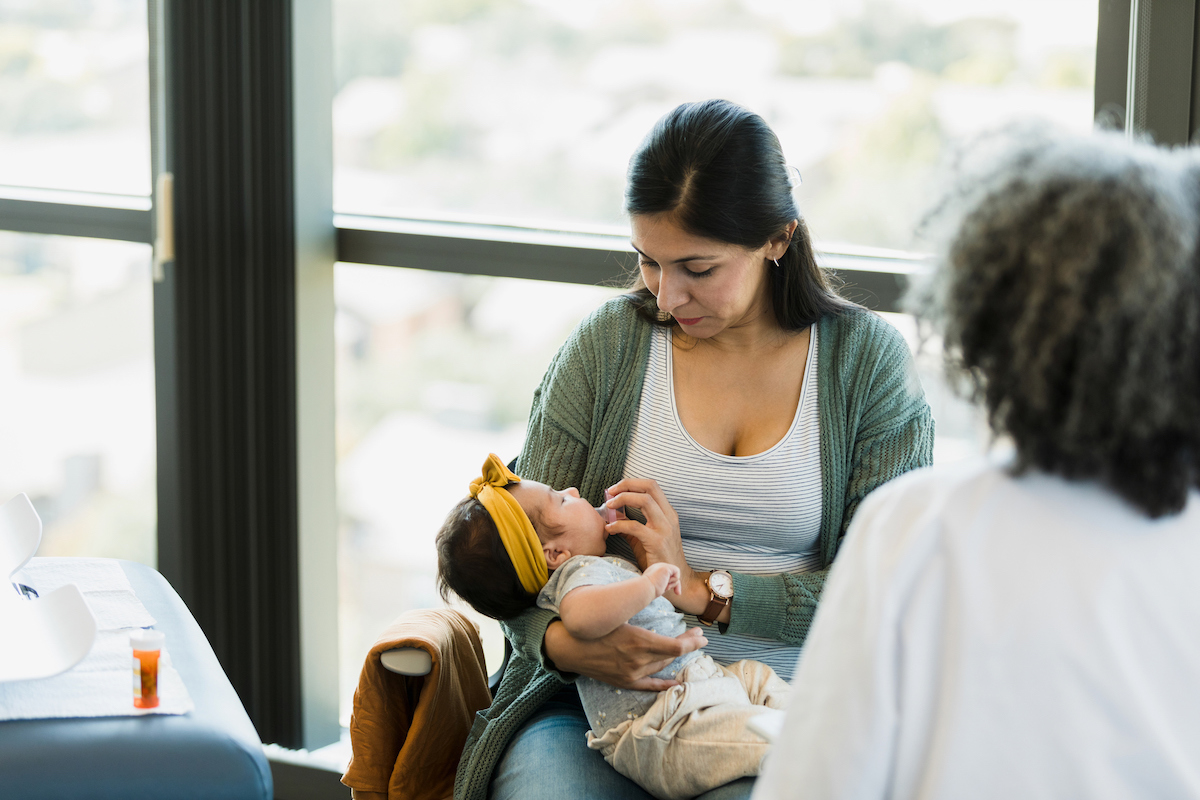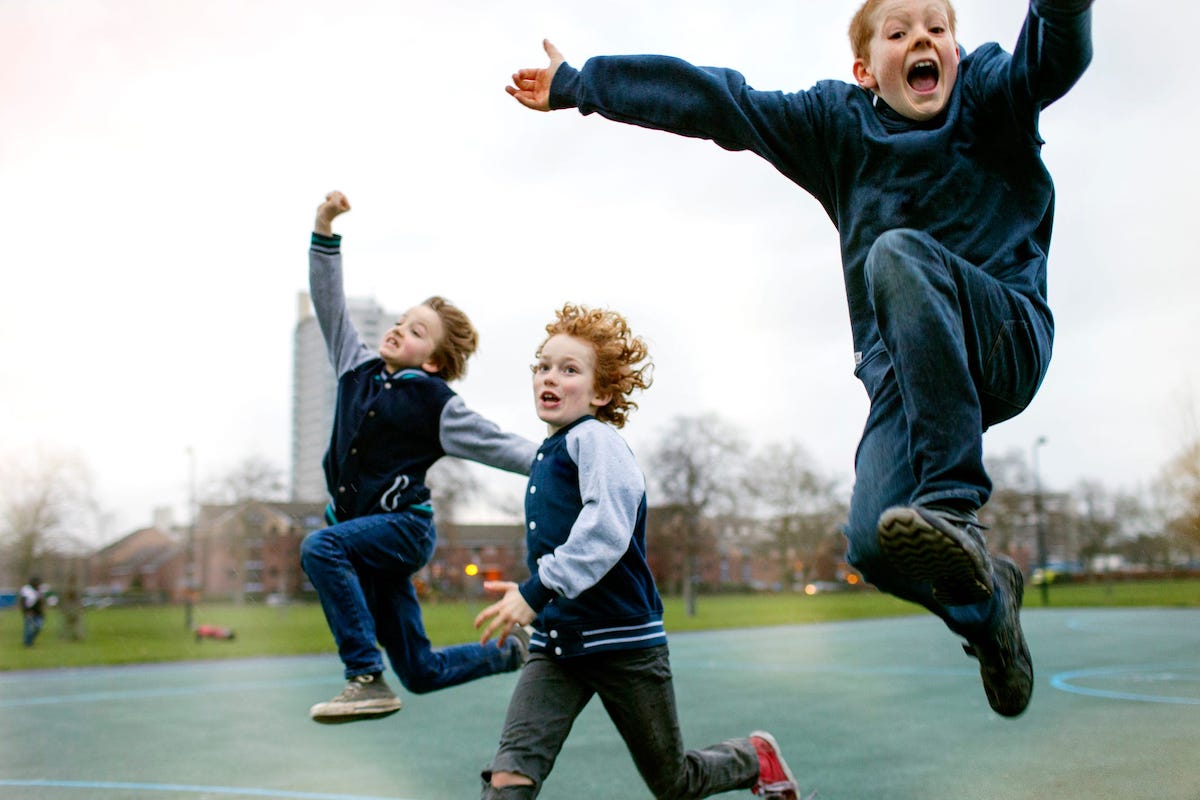Last month, Jennifer Wallace published Never Enough: When Achievement Culture Becomes Toxic. It immediately hit the New York Times bestseller list, and I wasn’t even a bit surprised. This is a book, as I say in the interview, that I think everyone with a child should read. It lays bare the issues around a culture that focuses so strongly on achievement, and how that focus can contribute to youth mental health struggles and to weaker relationships with our children. The book puts forward a meaningful alternative, explaining how we can show our kids they matter to us, no matter what.
I learned a lot, and I think you all will too. Please enjoy!
Full transcript
This transcript was automatically generated and may contain small errors.
I’m a professor of economics at Brown University. I’m the author of Expecting Better and several other books about data-driven parenting. I write the newsletter ParentData, and this is ParentData, the podcast. If you’ve listened on this feed before, you’ve been listening to what I would call ParentData 1.0. Mostly this was me reading my newsletter out loud, and we also included some interviews with experts on a variety of parenting topics. It was fun, but it was also on our back burner. But over time I’ve realized that audio is an incredible opportunity to have deeper conversations with other experts, with people who, like me, love data, but are coming at it from a little bit of a different angle. And so this is ParentData 2.0.
We’re going to publish it more regularly. It’ll be in your feed every two weeks, and I’m going to focus more on these interviews with an even wider range of experts who, like me, love data, and like you, love to understand what data means for you and for your kids. But in many cases, these experts are going to bring their own perspective. They’re scientists. They’re counselors. They’re experts in self-care. And we’ll talk together about how we combine data with these other parts of our life to make the best decisions for our family. I’m also hoping in this podcast to hear more from you. We’ll hear from you through your stories, through your questions, and we’ll try to bring it together to get into the really hard and complicated parts of parenting.
The questions that we have as parents are endless, and my goal, the goal in this podcast is not to answer those questions — the reality is most of them are totally unanswerable — but to help you navigate through them to find answers that work best for you and your family. I’m glad you’re here listening. I have a lot of stories to share. My guests have a lot of stories to share. I hope that you’ll be willing to share your stories too. So without further ado, here is our first episode.
[Violin music]
When I look back on this as an adult, I find it kind of horrifying. I don’t blame my parents, not even for a second. This was a hundred percent self-driven. But at the same time, it isn’t the experience that I want for my own kids. But when I look around, the pressures that drive this kind of behavior seem almost infinitely worse now than they did 26 years ago when I was behaving like this. And yet there is this enormous challenge thinking about pulling out of this, especially in particular circles. It almost feels like there can be no other way to raise a child to be a high schooler other than to lean in in these ways that really can seem very unhealthy. And so while I am simultaneously thinking “I don’t want this for my child,” I am also thinking, “Well, how could I possibly avoid it?”
Thinking through all of this is part of why I was incredibly happy to encounter this book, Never Enough. And more or less, as soon as I read it, I knew that Jennifer Wallace is somebody that I had to talk to. And I’m going to talk to her today about this never enough culture which grapples with these questions of how we arrived at where we are, about how we can support our kids, about what are some of the dangers, and how we can think about pushing back or helping our kids to push back.
One note before we get started. I anticipate some reaction here around whether it’s really appropriate to focus on what is, in the end, a fairly privileged set of problems when there are kids and parents who struggle so much with so many bigger, larger issues. I’m going to ask Jennifer about this during our interview, and I’m going to leave it to her to answer because I thought what she said was thoughtful and instructive. After the break, Jennifer Wallace.
So I’m thrilled to welcome Jenny Wallace to talk about Never Enough. Jenny, thank you for joining me.
“In one of my early interviews for this book, I met Molly, a high school junior living in Washington state. She began by telling me that many of her classmates on the advanced placement track either went to bed or woke up at 3:00 AM to cram in all their studying. Molly confessed sheepishly that she wasn’t a night person and told me she went to bed around midnight most nights and sometimes woke up early around 5:00 to study before tests or to put the finishing touches on a paper. When I asked her how as a varsity athlete she maintained her stamina on only five hours of sleep, Molly tightened her high ponytail and answered me without any irony. ‘Those days, I run the laps in practice with my eyes closed.'”
You say that this stuck with you. I can see why, and you started the book with it. Why are you starting here? What is it that makes this the right entry into the problems you’re talking about?
But over the last several years we have ushered in extreme inequality, the crush of the middle class, globalization. It produced this hyper-competitive environment that parents don’t necessarily even understand that they are absorbing these stressors, and they are becoming, in the words of researcher Tom Curran, social conduits, passing this fearful environment onto our kids in the way that we parent. And this is not to blame parents because I am right there with you in the trenches. These are pressures and forces that are bigger than any one family in any one school, in any one community. And I think we need to talk about them. We need to stop personalizing our parenting and start putting it into a larger context.
I mean, there’s another thing going on, I’m curious what you think about this, which is that as inequality has grown, particularly in the spaces that you’re talking about, and I want to come back to why we are talking about these spaces, but particularly in the upper income spaces, the inequality between very, very high income and really also very high but not quite as high income has grown and seems very big. And I think part of this feels like, in order to have my kid achieve, they actually need to… The rewards to being Jeff Bezos are so large that I should be able to do whatever to get my kid to be Jeff Bezos because I also need them to go to the moon in a rocket or whatever is the pinnacle of achievement. So I wonder how much of that is going on.
So we’re not even talking about the pressure on our kids to be the next Jeff Bezos, which is surely a goal for many kids in this high-achieving income bracket. But our kids are also getting the messages that the future is really unknown, and you better start saving your ice cream shop money now. I mean, that was such a shocking conversation I had.
And yes, these parents, many of them can afford to treat their children. But we need to talk about this. We need to raise an awareness that this is a real thing. And no one is asking to take resources away from children who are living in poverty or with incarcerated parents or whatever the other set of at-risk group of children are. No one is asking to take any resources or empathy away from them. It’s just sort of broadening the lens and showing that the impact of socioeconomic status is at both ends of the economic spectrum, I guess is what I’m trying to say.
So the adults are strangely, perversely, incentivized to keep this achievement culture going. Coaches, for example, they need a 12-month a year salary. This is different from when I was growing up when we would have the rec team, and the town was the one running it and it was seasonal and it was fine. Now these coaches need a year-long salary. But the real blame, if I could say-
And as I was looking for a framework to present my findings to parents, I came across mattering. Mattering was first conceptualized in the 1980s by Morris Rosenberg, who also conceptualized self-esteem. And what he found in the ’80s was that kids who enjoyed a healthy level of self-esteem felt like they mattered to their parents, that they were important and significant. And the research on mattering has picked up particularly in the last half dozen years. And the researchers who study it, the definition that resonated most with me and what I saw in the healthy achievers that I met, was that they had this high level of mattering, meaning that they felt valued by their families, by their friends, by their communities for who they were at their core. And importantly, they were depended on to add meaningful value back to their families, to their schools, to their communities.
So the kids who were doing the worst seemed to feel like their mattering was contingent on their performance. Or the other group that seemed to also be struggling were kids who felt like they were valued but were so self-focused on their own resumes that they were never asked to give back in any meaningful way to anyone other than themselves. And what that did was for them it lacked social proof that they mattered. So they might’ve gotten the words of mattering, but they didn’t see their impact. And so for people to really enjoy this high level of mattering, they need to both feel valued and be adding value. And that acts as like a protective shield. It doesn’t mean that the healthy achievers weren’t stressed sometimes and anxious and didn’t have failures, but they had almost like a buoy that raised them up so that they could bounce back faster because their failures were not an indictment of who they were.
And I think mattering would be an interesting word there. This is a person to whom I matter, and that’s what I hang onto. That’s the buoy when people are yelling at me, or in this case that’s, the kind of buoy when I feel like this test isn’t going well or I’m not achieving to the level when something goes wrong.
But then it’s also depending on them to add value back to the family. And I don’t even use the word chores anymore because I have tried. I have three teenagers now, and oh my gosh, I’ve written about chores and the importance of chores. And we’ve tried to do it in our house. But I’ve reframed it now where we don’t even bring up the word chore. We talk about, “Here are the family matters. Here’s what we need this week in our family. I need somebody. I have a deadline. I need somebody to help me grocery shop. I need somebody to help me with my tech. My internet’s not been working.” So talking about the needs of the family and helping kids feel like they can problem-solve with us. So we actually do these.
And young families can do this too. I wish I had started this earlier, but we do… It’s a bad name but we call it family meetings. And it’s actually an Alfred Adler idea. He was a contemporary of Freud’s. And what the family meeting does it’s just 10 minutes a week, literally 10 minutes, where you sit as a family. Each person runs the meeting. One other person sort of keeps an eye on the clock. And you talk about maybe one thing you sort of value or love about the person. We go around the table, and we start it with a positive thing, something we were grateful for this week that somebody did for us. And then we talk about family matters. And we have sort of this list that I keep of things like the shoes when I walk into my house. Even though our closet is six steps away, nobody uses the closet. And so we had this gigantic pile. And they all have two or three shoes, so we have like nine pairs of shoes hanging out.
And so that was a family matter. So how can we problem solve that as a family? And actually one of my kids said, “On Amazon, there is a shoe rack, and the reason I don’t put my shoes in is because then I can never find them when I’m running out the door. If we invested in a $19 shoe rack, we would put our shoes away.” And guess what? Mostly they do. Mostly they do. I mean, this is not a perfect system. So what those family meetings do is they bolster mattering by saying, “You have a voice. You are significant. You are an important part of this family, and also, you have a responsibility to help us function better, to help alleviate the stress in our environment. And what can you do?” I mean, I have so many more ideas in the book.
And so if a child, I don’t know, does really poorly on the math test, let’s say, instead of saying to your child, “Oh man, what did you do wrong? This is because you’re watching TV, which is really talking about who they are as a person,” instead it could be, “What are your working skills? Let’s figure out…” Because all kids want to do well. So we have to just make that assumption, all kids want to do well. So as a parent, it is how we react in those moments that I think define our relationship with our kids.
So what I’m saying to parents is it’s not that we want to not have our kids achieve. We don’t want to have no standards that makes them feel like they don’t matter. What we want to do is to be really careful about the messages we are sending, where that bar is that we put up for our kids, and to make sure it’s adjustable, and that it’s relevant to each child, and so not to be pushing them to excellence, but instead helping to instill this healthy drive that will actually keep them motivated and succeeding in the long run.
I’ll just leave you with this. Parents know you don’t let your kid drink or use drugs. We should not be encouraging that. Great. What parents really need to be doing is helping their kids develop the kind of life that they don’t have to escape from with drugs and alcohol. And I saw so much of it in my travels that the kids whose parents didn’t put up parameters, who didn’t sort of put the brakes on when their kids were taking on too much, those were the kids that were reaching for the bottle and the drugs on the weekend to black out. So if we want to avoid that in our kids, we need to help them build a life that they don’t have to escape from.
And what I have found in traveling to these competitive communities, it’s not that these parents didn’t have friends, it’s that they didn’t have time in their schedule to develop their friends to be the source of support that they need when they are going through something so that they can be strong when their children are under distress, so that they could show up to be the first responders to their kids’ pain that we want to be.
You will sometimes hear people say, “This is a great opportunity to lose weight and get into your best fit shape before pregnancy,” but you don’t need to do that to have a healthy pregnancy. Fundamentally, rather than focusing on preparing your body, I would think about preparing your life and making sure that you are emotionally ready, that you and your partner are ready for a lot of the changes that come, that you have a plan for how your family growth is going to go, and for how you’re going to be as happy as possible as parents. That is where I would put your attention rather than trying to get your body ready because it’s ready.
There are a few things that I would consider doing before you start trying for pregnancy. One is to start taking prenatal vitamins. That’s going to prepare your body with a good dose of folic acid, which is important for preventing birth defects. I would also, if you can, have a preconception appointment with your doctor. That’s not exactly about preparing your body, but it’s an opportunity to talk about if you are taking prescription medications, how to manage that leading into a pregnancy, and really to answer any other questions that you have as you think to embark on this. As a final note, even if you prepare, prepare your life, prepare your body, it is still possible you’ll struggle to get pregnant. Infertility affects a large number of women. If that happens, there is help in a variety of ways, and it’s important not to blame yourself for that experience.
Thank you for listening. ParentData is produced by Tamar Avishai with support from the ParentData team and PRX. Also, special thanks to our house violinist, my daughter, Penelope.
Community Guidelines













Log in